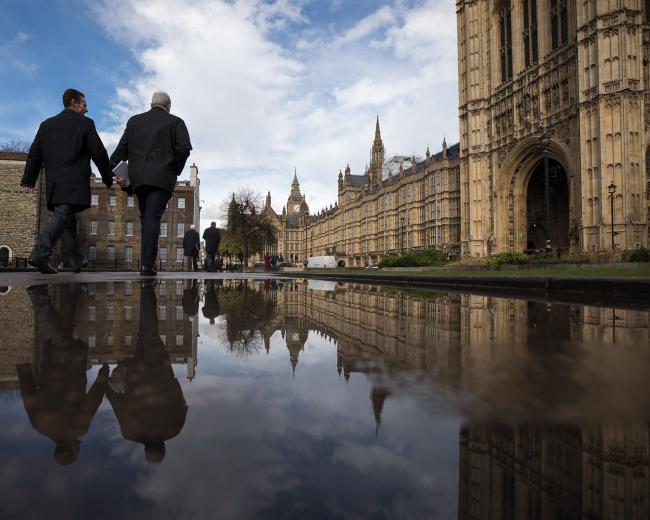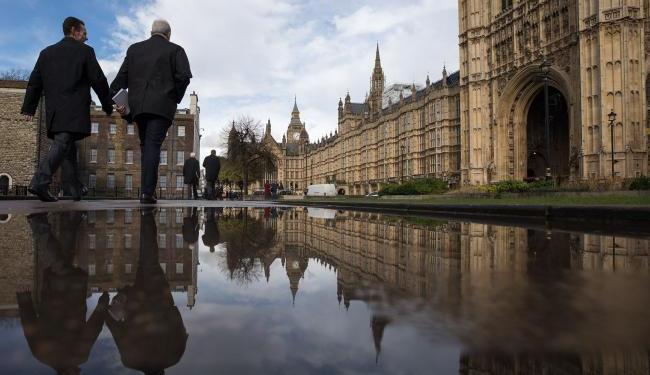 © Bloomberg. Pedestrians walk past a puddle of rainwater reflecting the Houses of Parliament in London. Photographer: Simon Dawson/Bloomberg
© Bloomberg. Pedestrians walk past a puddle of rainwater reflecting the Houses of Parliament in London. Photographer: Simon Dawson/Bloomberg(Bloomberg) — Higher credit card charges, slower service, more regulation — and less sperm. The British government’s picture of life after a “No Deal” Brexit isn’t a pretty one.
As he published the first set of guides for businesses advising them on how to prepare for the possibility of talks collapsing, Brexit Secretary Dominic Raab did his best to put a positive spin on them.
He achieved this largely by not talking about their contents. Instead he ridiculed suggestions that there might be food shortages, and insisted that the scenario would open up opportunities for Britain.
But the documents themselves set out a different picture, underlined in the hours that followed. First the government asked pharmaceutical companies to stockpile drugs, and then Chancellor of the Exchequer Philip Hammond repeated the Treasury’s warning that leaving the EU without a deal would have “large fiscal consequences.”
While Raab promised that in many areas the U.K. would take over seamlessly from the European Union, the papers served to emphasize that many of the problems created by a no-deal departure would be beyond the British government’s powers to fix.
Read more: What ‘No-Deal Brexit’ Means and How It May Be Averted
British citizens living in the EU might no longer be able to access their bank accounts. British companies would lose access to Europe’s payments infrastructure. Businesses that trade with the EU were urged to prepare for extra bureaucracy — the government may hire another 9,000 civil servants to more than double the number of staff working on the divorce.
In the section on the long-running question of Ireland’s border with Northern Ireland, businesses were advised to see if another government could help: “If you trade across the land border, you should consider whether you will need advice from the Irish government about preparations you need to make.”
Sam Lowe, trade expert at the Center for European Reform, said that the documents probably contained few surprises for large businesses. “Bigger companies can deal with this, and are probably starting to think about dealing with it,” he said. “For the smaller guys, all this will be news to them.”
Read more: Raab’s ‘No-Deal’ Brexit Plans Likely Understate Economic Pain
But Lowe said that even though the documents were branded as dealing with a “no deal” situation, many of the suggested preparations will be needed even if Britain stays close to the EU. “They outline a lot of things that all companies will have to do even if we have a deal,” he said. “New forms to fill in, registering as exporters. It’s explaining the bureaucracy of Brexit.”
And it was clear from the documents that the first wave of winners from Brexit will be people paid to deal with that bureaucracy. Businesses were urged to consider “whether they should engage the services of a customs broker, freight forwarder or logistics provider to help, or alternatively secure the appropriate software and authorizations.”
Fusion Media or anyone involved with Fusion Media will not accept any liability for loss or damage as a result of reliance on the information including data, quotes, charts and buy/sell signals contained within this website. Please be fully informed regarding the risks and costs associated with trading the financial markets, it is one of the riskiest investment forms possible.
Source: Investing.com




















